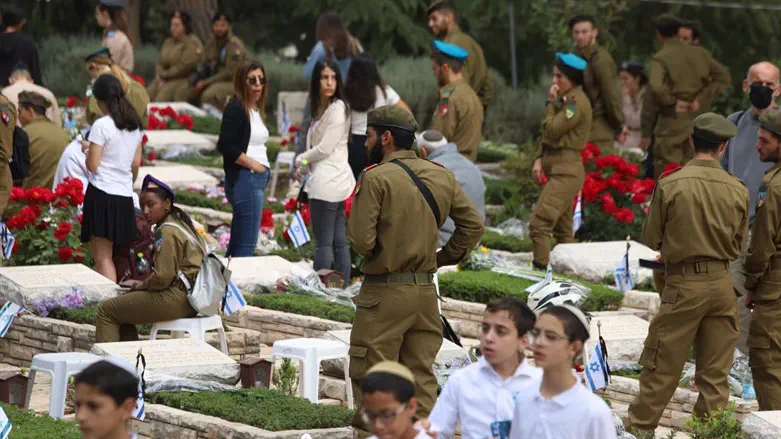
This commandment from the Haggadah is the seminal message of Pesach. We are enjoined to envision the Seder as a profound teaching by doing exercise, both for ourselves, but especially for our children.
My wife and I have just returned from participating in three powerful ceremonies in marking Yom Ha Zikaron, Israel’s Day of Remembrance. We bow our heads in recognition of the sacrifice made by our soldiers, and we remember all those who were killed here solely because they were Jews living in the miraculously restored Jewish Commonwealth known as the State of Israel.
These ceremonies are profound rituals of expressing gratitude and of ennobling heart-rending loss. But there is another facet to them, one that evokes the spirit of the Seder.
Perhaps it is because we live in a small, historic village, that has a deep sense of its connection to the founding and establishment of the State of Israel.
Whatever the underlying motivation, the reality in each of the three ceremonies was the same: a profound and pervasive involvement with children and teens.
Last night, there was the annual town ceremony held in a plaza that contains plaques containing the names of our local fallen. Teenagers read poems and played plaintive musical tributes. There were large groups of elementary school kids who were remarkably well behaved.
This morning there was a very special ceremony in the Rosh Pina Cemetery at the graveside of a young man who was executed by the British in 1938. His death was a turning point in the Jewish attitude towards the British, and is seen in retrospect as a step along the road to national independence.
The elementary school band played music, and dozens of sixth graders told the story of Shlomo Ben Yosef and read poems by Alterman and others.
Following this ceremony, we climbed the hill to the Military Ceremony, where hundreds of people converged for the annual memorial service. Scanning the crowd, I was struck by how many youth group kids there were, as well as children with their parents.
What is so powerful is this desire to inculcate into the children the significance of what this day is about. There is no desire to shield them from the reality of loss and sacrifice; quite the opposite.
Our children are being told that this is the reality of life here. You will be asked to serve your country, and service entails risks and dangers. But it is service with purpose, with meaning and with universal appreciation for the act.
Participating in these ceremonies as players and not just as spectators is a powerful example of learning by doing, of instilling by direct participation one’s own stake in the national story.
Including, and even delegating responsibility to children for profoundly important national rituals, is a ritual in and of itself. It is empowering, and an invitation, indeed an exhortation, to maturity and responsibility.
It is also the key to continuity and persistence. By involving and thereby teaching our children from a young but impressionable age, we will have done our utmost to assure the continuation of all that we hold dear.
Douglas Altabef is the Chairman of the Board of Im Tirtzu and a Director of the Israel Independence Fund. He can be reached at dougaltabef@gmail.com.